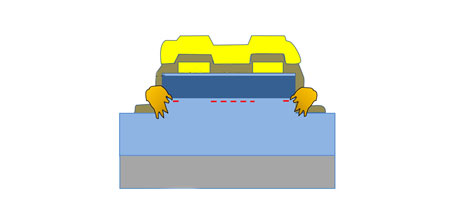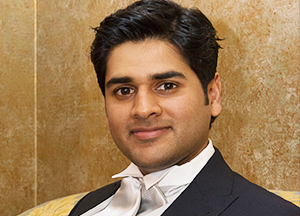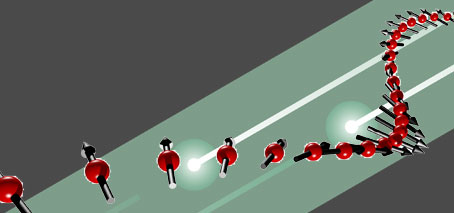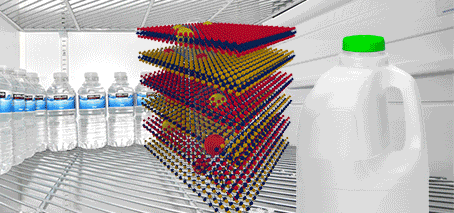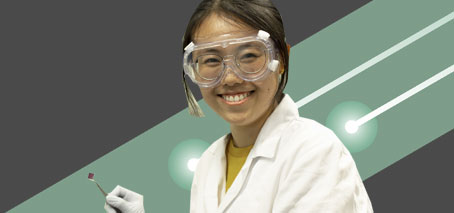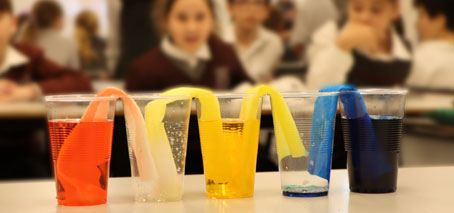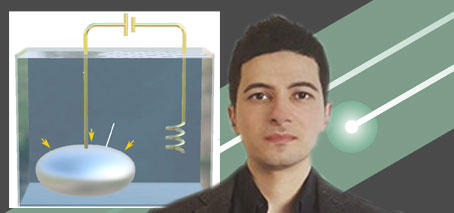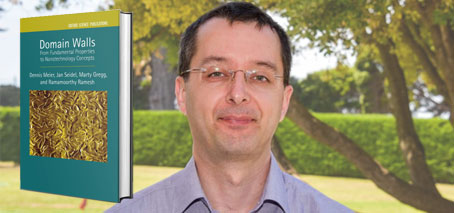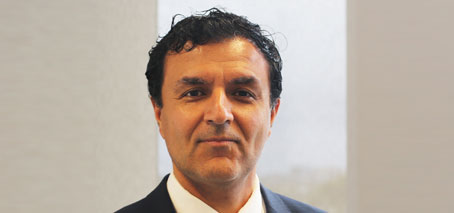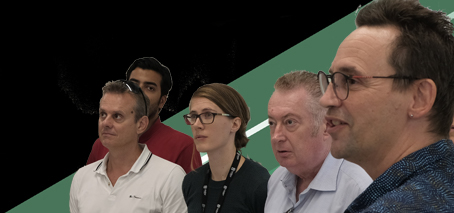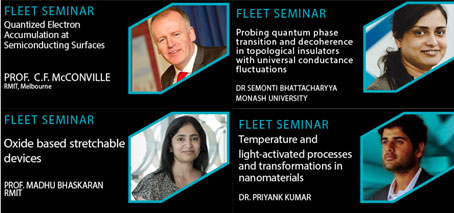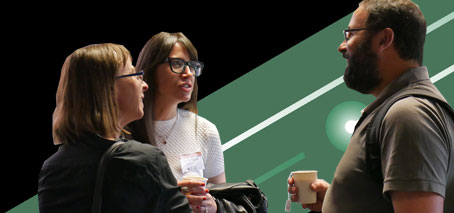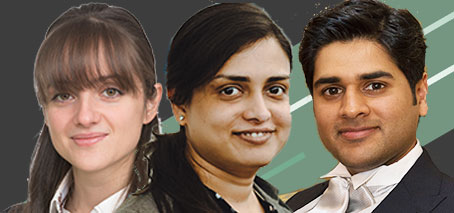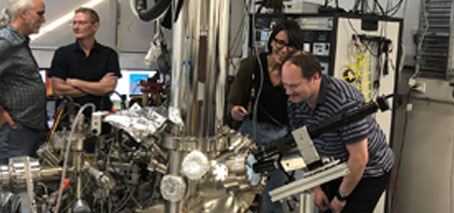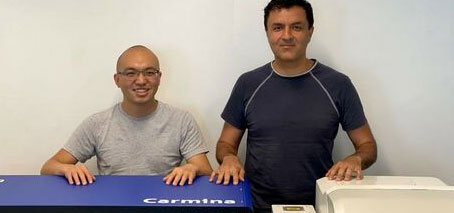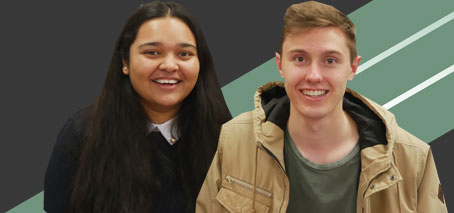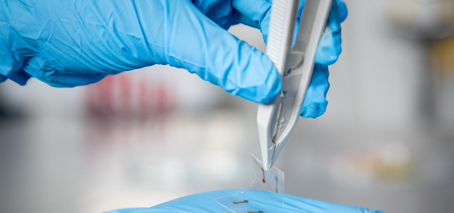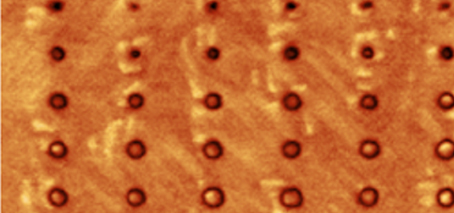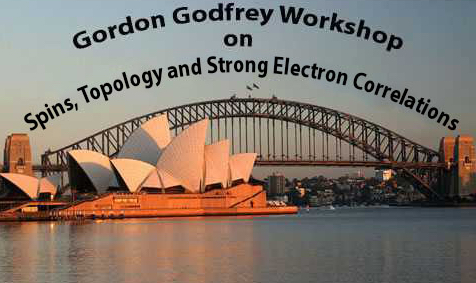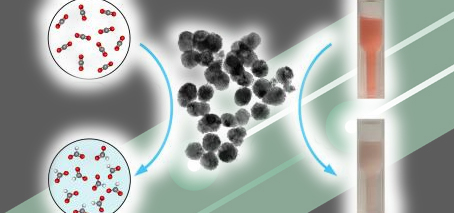Australia’s Minister for Education Dan Tehan announced $280 million in funding for new research collaborations to start next year. This month’s ARC Discovery Project and Linkage Project funding announcement includes eight grants for projects and facilities led by or involving FLEET researchers. While these projects are distinct from FLEET’s mission to build low-energy electronics, they testify to the capacity FLEET …
Making better quantum devices
Removing random doping allows for reproducible manufacture of quantum devices A UNSW-led collaboration has found that removing random doping in quantum electronic devices dramatically improves their reproducibility – a key requirement for future applications such as quantum-information processing and spintronics. The quantum reproducibility challenge The challenge with making quantum devices is that, until now, it has not been possible to …
Priyank Kumar – new 2021 DECRA fellow
Congratulations to Priyank Kumar who received a Discovery Early Career Researcher Award (DECRA) 2021 round 1 announced today. With a success rate of only 17 percent, Dr Kumar’s project “A predictive, ab initio design of enhanced plasmonic photocatalysts” was among the 200 awarded in this round. By utilising state-of-the-art ab initio computations, Dr Kumar will design an efficient plasmonic …
Node Coordinator – FLEET at UNSW
Applications Close 13 November 2020 An opportunity exists for a research centre administrator to join the FLEET business team to assist with the planning, administration and reporting for the Centre. The successful candidate will work closely with FLEET@UNSW node leader, Prof Alex Hamilton to ensure effective administration and communication with centre members. We’re looking for someone with: Demonstrated experience in providing administrative support …
Reviewing multiferroics for future, low-energy data storage
Multiferroic BFO’s unique magnetic and electrical properties offer possible ultra-low energy data storage A new UNSW study comprehensively reviews the magnetic structure of the multiferroic material bismuth ferrite (BiFeO3 – BFO). The review advances FLEET’s search for low-energy electronics, bringing together current knowledge on the magnetic order in BFO films, and giving researchers a solid platform to further develop this …
Kitchen-temperature supercurrents from stacked 2D materials
Could a stack of 2D materials allow for supercurrents at ground-breakingly warm temperatures, easily achievable in the household kitchen? An international study published in August opens a new route to high-temperature supercurrents at temperatures as ‘warm’ as inside a kitchen fridge. The ultimate aim is to achieve superconductivity (ie, electrical current without any energy loss to resistance) at a reasonable …
Liquid metals come to the rescue of semiconductors
Moore’s law is an empirical suggestion describing that the number of transistors doubles every few years in integrated circuits (ICs). However, Moore’s law has started to fail as transistors are now so small that the current silicon-based technologies are unable to offer further opportunities for shrinking. One possibility of overcoming Moore’s law is to resort to two-dimensional semiconductors. These two-dimensional materials …
Engaging science-outreach in the times of COVID
Scientists finding creative ways to do science-outreach found a silver lining in COVID restrictions actually improved the experience for students, and took the scientists back to remember ignition of their own childhood ‘science spark’. A team of FLEET PhDs and ECRs at UNSW were able to bridge 2020’s COVID restrictions to safely engage a classroom of students with virtual, but …
UNSW outreach videos from the lab
It’s certainly been a challenge, maintaining science-outreach efforts in 2020… But a group of a FLEET researchers found a way to showcase their labs at UNSW recently, spotlighting the facilities for prospective students at the university’s virtual open day. Introduction to the undergrad physics labs (Krittika Kumar, Matt Rendell, Yoni Ashlea-Alava and Karina Hudson) Measuring superconducting quantum interference: a third-year …
Growing metallic crystals in a liquid-metal solvent
Imagine an alien world with oceans of liquid metal. If such a world exists, metallic elements are likely the sources of the dissolved materials and particles in these oceans. Everything would be made of metallic elements, even lifeforms. It may sound like a concept pulled straight out of a science fiction movie, but some basic elements of this fantastical vision …
Jan Seidel co-edits first book on emerging domain wall nanoelectronics
FLEET CI Prof Jan Seidel (UNSW) is co-editor on a new book titled “Domain Walls – From Fundamental Properties to Nanotechnology Concepts” published by Oxford University Press. It is the first to cover the emerging field of ferroelectric domain walls in depth, from underlying nanoscale material properties to prototype and emerging nanoelectronics technology and future research concepts in the area. …
Liquid metal synthesis for better piezoelectrics: atomically-thin tin-monosulfide
Record output power obtained from piezoelectric, atomically-thin material Remarkable synthesis advance for materials such as tin-monosulfide (group IV monochalcogenides), which are predicted to exhibit strong piezoelectricity Potential materials for future wearable electronics and other motion-powered, energy-harvesting devices RMIT-UNSW collaboration applies liquid-metal synthesis to piezoelectrics, advancing future flexible, wearable electronics, and biosensors drawing their power from the body’s movements. Materials such …
FLEETs Kourosh Kalantar-zadeh awarded prestigious prize
FLEET CI Professor Kourosh Kalantar-zadeh (UNSW Sydney) has been awarded the prestigious 2020 Robert Boyle Prize for Analytical Science by The Royal Society of Chemistry. Prof Kalantar-zadeh is recognised for his significant influence across multiple fields of engineering. Contributions to society coming from his research across multiple disciplines include new innovative pollution sensors, transistors, medical devices and optical systems. Many …
Liquid metals break down organic fuels into ultra-thin graphitic sheets
For the first time, FLEET researchers at UNSW, Sydney show the synthesis of ultra-thin graphitic materials at room temperature using organic fuels (which can be as simple as basic alcohols such as ethanol). Graphitic materials, such as graphene, are ultra-thin sheets of carbon compounds that are sought after materials with great promises for battery storage, solar cells, touch panels and …
Hosting Materials Australia at UNSW
—by Cecilia Bloise, Node Coordinator, UNSW Materials Australia members were hosted on a tour of FLEET’s labs at UNSW in February. FLEET is an ARC Centre of Excellence researching novel materials for ultra-low energy electronics. FLEET represents over a hundred physicists and materials scientists working to develop a new generation of electronics to address the challenge of energy used in information …
Hosting research seminars in 2019
FLEET’s live-streamed seminars help share research results across the Centre, keeping members informed on latest FLEET research, and enhancing inter-node collaboration. Early-career researchers presenting the seminars gain valuable presentation experience, and benefit from immediate feedback on their research from diverse Centre members. In 2019, FLEET-wide live-streamed seminars were presented by: Dr Dan Sando (UNSW) Dr Jackson Smith (RMIT) Dr Maciej …
Hosting scientific meetings in 2019
FLEET supported significant international and Australian conferences in 2019, which was bookended by major, FLEET-hosted conferences at the end of 2018 (ICON2D-Mat) and beginning of 2020 (ICSCE). With new partner organisation the MacDiarmid Institute (NZ), FLEET co-organised the Conference on Signature of Topology in Condensed Matter in Italy, working closely with the International Centre for Theoretical Physics. Almost 120 researchers …
Three FLEET ECR Grant recipients
First recipients of FLEET ECR Grants Grants funding research trips to Italy, Singapore, US FLEET’s ECR Grants fund travel for ECRs and PhDs, developing networks and professional and scientific skills, including supporting travel to research facilities to learn new techniques, form new collaborations, or complete training. Of the 1st round’s eight applications, the Education & Training Committee decided to fund three: …
MacDiarmid visit
Simon Granville, a Principal Investigator of the MacDiarmid Institute, visited FLEET collaborators at RMIT (Lan Wang and Torben Daeneke), Monash (Michael Fuhrer, Mark Edmonds, Julie Karel), UNSW (Jan Seidel’s group) and the University of Wollongong (Xiaolin Wang and David Cortie) in February to plan upcoming exchanges as part of several FLEET-MacDiarmid research collaborations funded in the 1st round of reciprocal …
Studying phonon-polaritons in hBN
Phonon-polaritons in layered crystals have peculiar properties where they occur at the boundary between materials. In a new study led from UNSW, phonon-polaritons were studied in thin-layer hexagonal boron nitride (hBN) by combined scattering-type scanning near-field optical microscopy (s-SNOM) and Fourier transform infrared (FTIR) spectroscopy. Prof Kourosh Kalantar-zadeh’s multidisciplinary group at UNSW combined scattering-SNOM single-wavelength imaging and broadband scattering IR …
Taste of research: UNSW
UNSW’s Taste of Research program provides undergraduate Physics students the opportunity to undertake a small research project with one of the research groups in the School. Cecilia Bloise asked students Seamus Lilley and Krittika Kumar who worked with FLEET PhD Yonatan Ashlea Alava, to describe the experience for our research blog… What are you working on Seamus? “I worked …
Nano-thin flexible touchscreens could be printed like newspaper
Researchers have developed an ultra-thin and ultra-flexible electronic material, able to be printed and rolled out like newspaper, for the touchscreens of the future. The touch-responsive technology is 100 times thinner than existing touchscreen materials and so pliable it can be rolled up like a tube. To create the new conductive sheet, an RMIT University-led team used a thin film …
Designer-defect mediated clamping of ferroelectric domain walls for more-stable nanoelectronics
Improved polarisation retention in ferroelectric a significant step forward for domain-wall nanoelectronics in data storage Engineering defects in ferroelectrics provides key to improved polarisation stability Researchers achieved stability greater than one year (a 2000% improvement) A UNSW study published today in Nature Communications presents an exciting step towards domain-wall nanoelectronics: a novel form of future electronics based on nano-scale conduction …
Kourosh recognised
FLEET’s Kourosh Kalantar-zadeh (UNSW/RMIT) has been awarded the 2019 Walter Burfitt Prize by the Royal Society of NSW, recognising Kourosh’s excellent research in liquid metals, atomically thin materials and ingestible sensors. The Walter Burfitt Prize is awarded every three years for research in pure or applied science deemed of the highest scientific merit. This year’s Royal Society prize recognises Professor Kalantar-Zadeh’s …
Discovery Projects $2.6m funding boosts FLEET research
Yesterday’s ARC Discover Project announcement saw FLEET research and researchers across three Australian universities awarded additional funding. Across five separate grants, over $2.6m new research funding went to projects and facilities led by FLEET researchers, complementing FLEET’s search to develop ultra-low energy electronics and boost related areas of research. Australia’s Minister for Education Dan Tehan yesterday announced almost $285 million …
Gordon Godfrey Workshop advances Australian quantum physics
Almost 120 researchers gathered in UNSW last week to discuss spin and strong-electron correlations in the university’s biennial Gordon Godfrey Workshop. The 2019 Gordon Godfrey Workshop on Spins and Strong Correlations was held at UNSW’s School of Physics for five days from 25 to 29 November. The Gordon Godfrey Workshops, which have been running since 1991, provide a forum for Australian and international researchers to exchange ideas and …
Developing future scientific leaders
FLEET tops up external funding to build leadership skills Two of FLEET’s six strategic priorities are developing the next generation of science leaders, and fostering equity and diversity in STEM. Establishing career support initiatives for women in FLEET is an important milestone towards achieving each of these goals. FLEET will provide an environment for our early-career women to thrive and …
Clarivate highly-cited researchers
Congratulations to FLEET Chief Investigators: Kourosh Kalantar-zadeh (UNSW and RMIT) in chemistry, engineering, material science and medical devices Qiaoliang Bao (Monash University) in 2D materials science, graphene, photonics, optoelectronics and optical comms The Clarivate Analytics list identifies researchers ranking in the top 1% by citations for their field. The citation identifies influential researchers as determined by their peers around the …
Future electronics and theoretical physics: Sam Bladwell interviewed
FLEET’s Sam Bladwell (UNSW) was recently interviewed by Ian Woolf on Diffusion Radio, discussing the ICT energy issue that drives FLEET’s research as well as his own theoretical studies into spin. Listen to: Future low-energy electronics Battling jetlag, Sam describes spintronics and the need for low-energy electronics (from 6:35min) Spins and valleys Sam describes how his theoretical studies dovetail with …
Liquid metals the secret ingredients to clean up environment
Forget the laboratory, substances that can solve environmental problems by capturing carbon dioxide, decontaminating water and cleaning up pollutants can be easily created in a kitchen, a UNSW Sydney study shows. In a paper published today in Nature Communications, UNSW chemical engineers shone a light on the mysterious world of liquid metals and their role as catalysts to speed up chemical …


